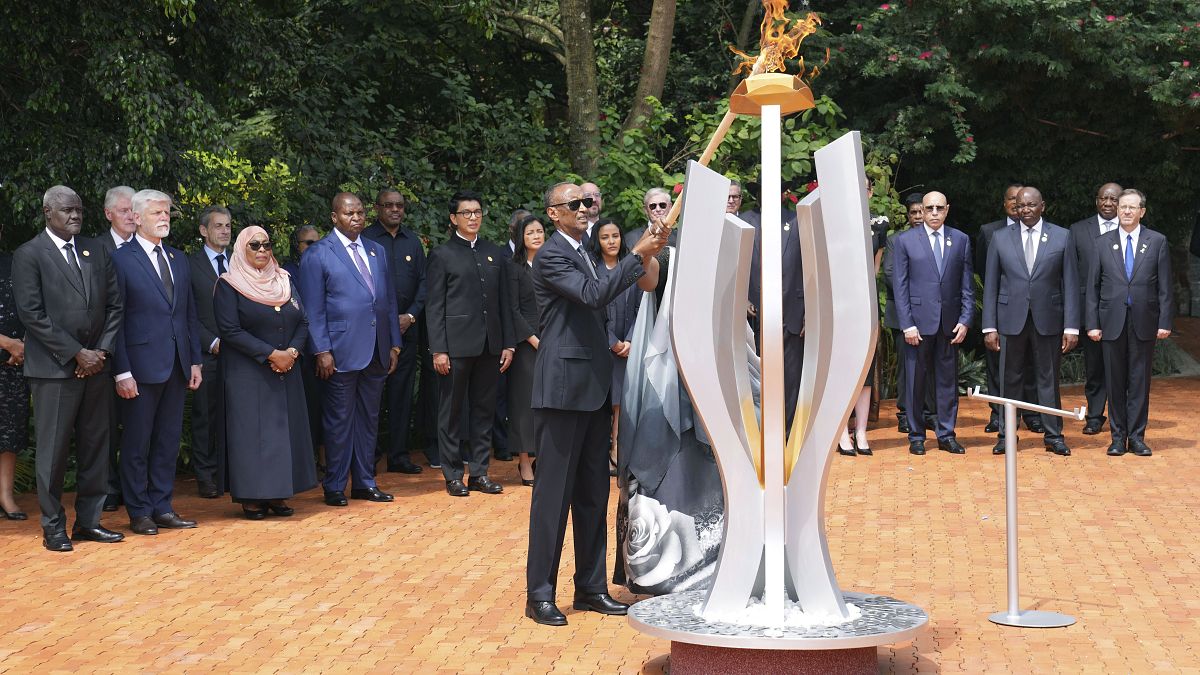Rwanda remembers genocide 30 years on in ceremony
World leaders around the world have marked the anniversary of the genocide of the Tutsi ethnic minority. Charles Michel, the President of the European Council, admitted responsibility, a kind of complicity on the part of the international community – which remained motionless, closed its eyes – in this dark moment in human history. He went […]


World leaders around the world have marked the anniversary of the genocide of the Tutsi ethnic minority.
Charles Michel, the President of the European Council, admitted responsibility, a kind of complicity on the part of the international community – which remained motionless, closed its eyes – in this dark moment in human history.
He went on to say: “The duty to remember, is above all a requirement. It’s about remembering, it’s about not forgetting. It’s about learning from our mistakes, to try and open up a more enlightened world”.
French President Emmanuel Macron, who was not present at the ceremonies, also reiterated on Sunday that France, its Western and African allies “could have prevented” the massacre, which killed around 800,000 people, stressing that there was a lack of “will”.
Rwandans are commemorating 30 years since the genocide in which an estimated 800,000 people were killed by government-backed extremists, shattering the small East African country that continues to grapple with the horrific legacy of the massacres.
Rwanda has shown strong economic growth in the years since, but scars remain and there are questions about whether genuine reconciliation has been achieved under the long rule of President Paul Kagame, whose rebel movement stopped the genocide and seized power.
Kagame, who is praised by many for bringing relative stability but vilified by others for his intolerance of dissent, will lead sombre commemoration events Sunday in the capital, Kigali. Foreign visitors include a delegation led by Bill Clinton, the US president during the genocide, and Israeli President Isaac Herzog.
Kagame will light a flame of remembrance and lay a wreath at a memorial site holding the remains of 250,000 genocide victims in Kigali.
The killings were ignited when a plane carrying then-President Juvénal Habyarimana, a Hutu, was shot down over Kigali. The Tutsis were blamed for downing the plane and killing the president. and became targets in massacres led by Hutu extremists that lasted over 100 days in 1994. Some moderate Hutus who tried to protect members of the Tutsi minority were also killed.
Rwandan authorities have long blamed the international community for ignoring warnings about the killings, and some Western leaders have expressed regret.














